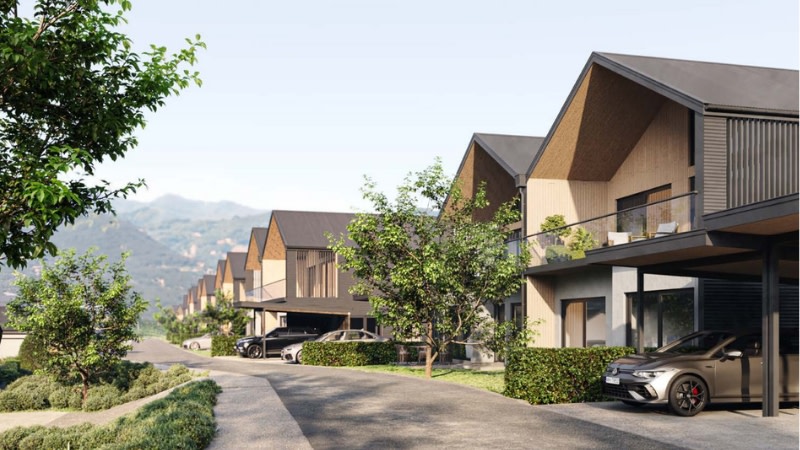NZ Approvals Regime Fast-Tracks Maitahi Village Project

A new suburb at the tip of the South Island has become the first housing project to win the green light under New Zealand’s “one-stop-shop” approvals regime.
Maitahi Village at Nelson will comprise 192 townhouses, a 36-bed care home, cafe, clubhouse and residents’ activity shed as well as a cultural base for Ngāti Koata with office and event spaces.
It is part of the wider 287ha Bayview Maitahi development rezoning in the Kākā Valley.
The alternative approval pathway that opened in February has about 150 projects on its list for consideration currently including infrastructure, mining and housing proposals.
The NZ Government created the regime to cut red and green tape, streamline the approvals process and stimulate economic growth.
Infrastructure minister Chris Bishop said the Maitahi Village development would provide much needed housing and commercial infrastructure for the Nelson region.
“It is a significant investment in the future of Nelson and is expected to inject up to $308 million into the local economy,” Bishop said.
“The Maitahi Village development is the second project to be approved through the fast-track one-stop shop after the Port of Auckland wharf extension approval last month.

CCKV Maitai Development Company is behind the Maitahi Village project that spans a 43.7ha site at 7 Ralphine Way, Maitai Valley.
Construction is expected to get under way next year and be completed by 2033.
Bishop said the country was nearing the bottom of a tough cycle and developers were finally regaining confidence in the market.
Greenshoots appearing include non-profit fund manager Simplicity filing plans in August for its biggest build-to-rent project outside Auckland, a 600 low-density home development planned for Queenstown.
Cotality NZ chief property economist Kelvin Davidson said while conditions were starting to shift, they did not expect a boom in property prices any time soon.
“Overall, property values remain sluggish for now, but conditions may be turning towards some growth in 2026, albeit likely muted,” Davidson said.
He said this was being shaped by ongoing economic and labour market weakness played out across many suburbs, with performance remaining patchy across property types.
Affordable pockets had the strongest house gains in the three months to September, Cotality reported.













